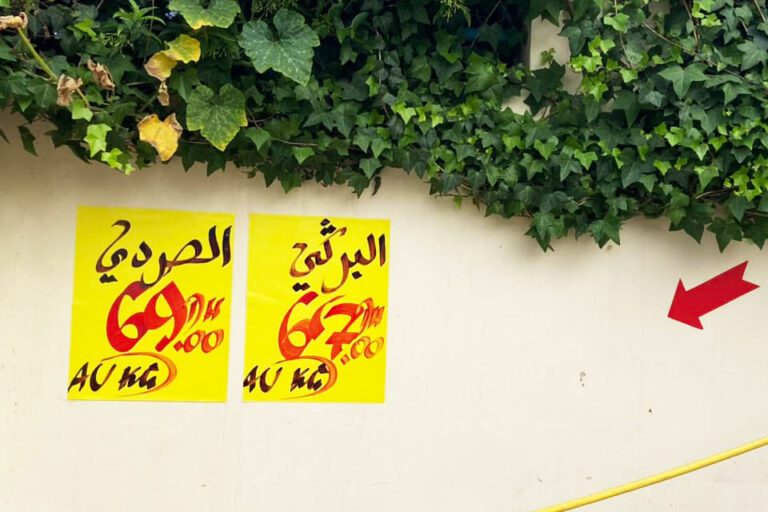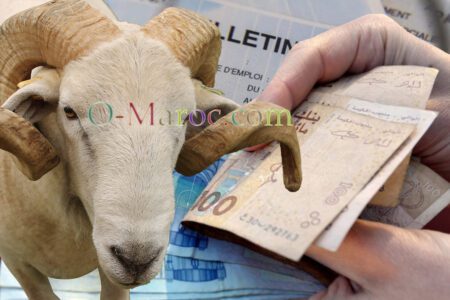When I arrived in Morocco twenty years ago, the most beautiful sheep cost between 2,500 and 3,000 dirhams, with animals starting at 1,200 dirhams.
Just over a month’s minimum wage. That was already a substantial budget. My family-in-law, for example, sacrificed four sheep after the sacrifice of a cow for Arafat. A large family from the south of Morocco, not a wealthy one (to put it mildly). My mother-in-law raised the sheep, which reduced the cost, but it was still an effort. All in all, Eid is worth more than 15 billion dirhams.
The price of mutton has more than doubled in twenty years
Prices rose until the Covid crisis, when they exploded.
This year, in June 2024, the price of a sheep is around 6,500 dirhams. Two minimum wages. More than a 100% increase. 117% to be exact.
And over the same 20-year period, inflation has been 45%. (Sources: World Bank and Bank Al Maghrib).
Admittedly, inflation is partly contained by price controls and the Compensation Fund, which are gradually disappearing.
The “sheep bonus” is not keeping up. And the weight of mutton in the expenditure of modest households is almost unbearable.
While 8% of them did not sacrifice a sheep in 2019-2020, even more are likely to go without this year.
The recent increase in the price of mutton can be explained by the drought, by the problems experienced by the agricultural sector after Covid, and therefore by the price of animal feed. But honestly, that doesn’t explain everything.
An essential ritual and celebration
Of course, the Quran doesn’t require you to sacrifice a sheep if you’re not able to do so. But not being able to buy a sheep is hard! Vis-à-vis family and friends. It’s not just a question of prestige, but, as with any important festival, not being able to please your family.
I’ve never forgotten the man in Ouarzazate who committed suicide because he couldn’t pay for his sheep.
The advertisements for taking out credit to buy the sheep for Eid have disappeared. Firstly because interest-bearing credit (riba) is forbidden in Islam, so it’s a bit ‘dissonant’ to do something forbidden to satisfy a religious obligation. And then because consumer credit is increasingly expensive, with interest rates of over 17%!
The towns are emptying out in preparation for the festival next Monday. For many, it’s their only opportunity to return to their hometowns and be with their families. So, in addition to the price of the sheep, there’s the cost of transport and days not worked (over and above the legal public holidays).
Cheaper sheep imported from Spain
This year, as last year, the Moroccan government has arranged for 600,000 foreign sheep and goats to be imported, mainly from Spain. Less ‘horny’ (not at all, in fact), but, according to a friend of mine whose family raises sheep near Casablanca and who ‘tested’ them before selling them, just as good.
And cheaper.
The result in 2023 was that supply had far outstripped demand. This year, forecasts for the number of Moroccan sheep are much lower… but imports are higher.
The problem is this:
The problem is that
Or, again according to my friend: “you need a Sardi with nice horns, to prove that it’s really a male.”
In conclusion, I can’t resist sharing this tweet:
https://x.com/lucyinhersky/status/1800640323858641351
 A typo or syntax error? You can select the text and hit Ctrl+Enter to send us a message. Thank you! If this post interested you, maybe you can also leave a comment. We'd love to exchange with you !
A typo or syntax error? You can select the text and hit Ctrl+Enter to send us a message. Thank you! If this post interested you, maybe you can also leave a comment. We'd love to exchange with you !




